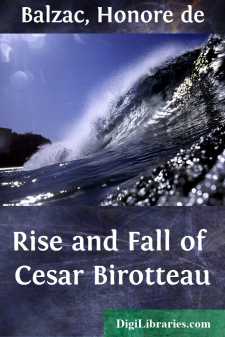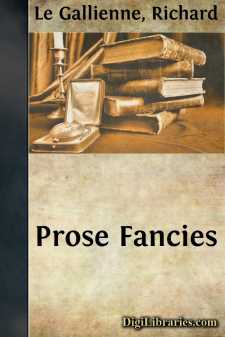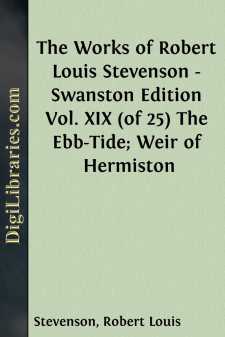Literary Collections
- American 84
- Ancient, Classical & Medieval 14
- Asian 1
- Australian & Oceanian 1
- Canadian 55
- Continental European 121
- English, Irish, Scottish, Welsh 179
- Essays 160
- General 24
- Letters 46
- Middle Eastern 1
Literary Collections Books
Sort by:
MARK TWAIN—A BIOGRAPHICAL SUMMARY SAMUEL LANGHORNE CLEMENS, for nearly half a century known and celebrated as "Mark Twain," was born in Florida, Missouri, on November 30, 1835. He was one of the foremost American philosophers of his day; he was the world's most famous humorist of any day. During the later years of his life he ranked not only as America's chief man of letters, but...
more...
by:
Harold Bindloss
CHAPTER I THE GLADWYNE EXPEDITION Vernon Lisle was fishing with a determination that did not spring altogether from love of the sport. The water of the British Columbian river in which he stood knee-deep was icy cold; his rubber boots were badly ripped and leaky, and he was wet with the drizzle that drove down the lonely valley. It was difficult to reach the slack behind a boulder some distance...
more...
by:
Honore de Balzac
During winter nights noise never ceases in the Rue Saint-Honore except for a short interval. Kitchen-gardeners carrying their produce to market continue the stir of carriages returning from theatres and balls. Near the middle of this sustained pause in the grand symphony of Parisian uproar, which occurs about one o'clock in the morning, the wife of Monsieur Cesar Birotteau, a perfumer established...
more...
by:
Honore de Balzac
PIERRE GRASSOU Whenever you have gone to take a serious look at the exhibition of works of sculpture and painting, such as it has been since the revolution of 1830, have you not been seized by a sense of uneasiness, weariness, sadness, at the sight of those long and over-crowded galleries? Since 1830, the true Salon no longer exists. The Louvre has again been taken by assault,—this time by a populace...
more...
by:
Joseph Addison
INTRODUCTION No character in our literature, not even Mr. Pickwick, has more endeared himself to successive generations of readers than Addison’s Sir Roger de Coverley: there are many figures in drama and fiction of whom we feel that they are in a way personal friends of our own, that once introduced to us they remain a permanent part of our little world. It is the abiding glory of Dickens, it is one...
more...
A SPRING MORNING I Spring puts the old pipe to his lips and blows a note or two. At the sound, little thrills pass across the wintry meadows. The bushes are dotted with innumerable tiny sparks of green, that will soon set fire to the whole hedgerow; here and there they have gone so far as those little tufts which the children call 'bread and cheese.' A gentle change is coming over the grim...
more...
INTRODUCTION. It is not improbable that some of those who read this book, may feel a wish to know in what manner I became possessed of the manuscript. Such a desire is too just and natural to be thwarted, and the tale shall be told as briefly as possible. During the summer of 1828, while travelling among those valleys of Switzerland which lie between the two great ranges of the Alps, and in which both...
more...
by:
Honore de Balzac
I In September, 1835, one of the richest heiresses of the faubourg Saint-Germain, Mademoiselle du Rouvre, the only daughter of the Marquis du Rouvre, married Comte Adam Mitgislas Laginski, a young Polish exile. We ask permission to write these Polish names as they are pronounced, to spare our readers the aspect of the fortifications of consonants by which the Slave language protects its...
more...
MY DEAR COLVIN, - As I rode down last night about six, I saw a sight I must try to tell you of. In front of me, right over the top of the forest into which I was descending was a vast cloud. The front of it accurately represented the somewhat rugged, long-nosed, and beetle-browed profile of a man, crowned by a huge Kalmuck cap; the flesh part was of a heavenly pink, the cap, the moustache, the eyebrows...
more...
CHAPTER I NIGHT ON THE BEACH Throughout the island world of the Pacific, scattered men of many European races, and from almost every grade of society, carry activity and disseminate disease. Some prosper, some vegetate. Some have mounted the steps of thrones and owned islands and navies. Others again must marry for a livelihood; a strapping, merry, chocolate-coloured dame supports them in sheer...
more...











